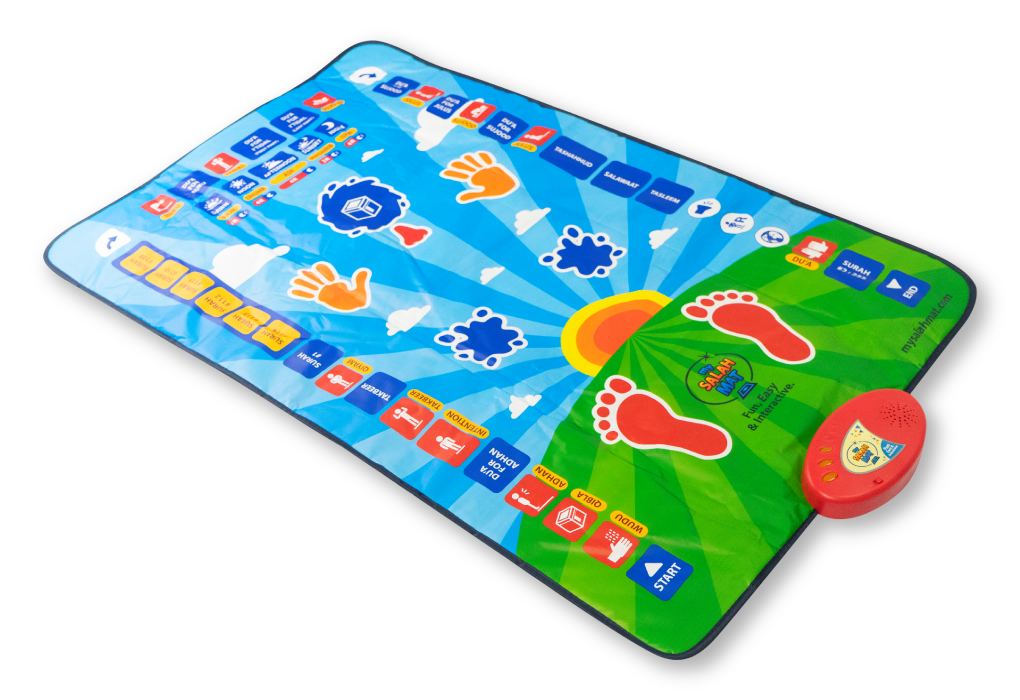Nurturing an Understanding of Islam in Young Children

As Muslim parents, one of our biggest hopes is to raise children who love Islam and embrace it wholeheartedly. Teaching our little ones about our faith isn’t just about lessons or memorising facts—it’s about instilling values, helping them feel connected to Allah, and making the journey a natural, joyful part of their lives. Here are some heartfelt, practical ways to nurture an understanding of Islam in young children.
1. Introduce Allah Through Love, Not Fear
A child’s first impression of Allah should be one of love, kindness, and compassion. When we tell our children about Allah, let’s focus on how He is always there for them, how He provides for us, and how He loves us. Talk to them about the beauty of creation—the stars, the flowers, the birds—and explain that everything comes from Allah, who loves us and listens to us. Making du’a together for even the smallest things, like finding a lost toy or asking for a good day, helps reinforce their trust and love for Allah.
2. Incorporate Islam Into Daily Routines
Young children learn best through daily repetition, and by weaving Islam into everyday life, we create a natural and lasting bond. For instance, saying “Bismillah” before eating or “Alhamdulillah” after a meal teaches gratitude and mindfulness. These small actions can become second nature for them. When they see us consistently incorporating Islamic phrases, it will feel like a regular, beautiful part of life. You could even use an interactive prayer mat like My Salah Mat to help them get excited about salah, which gives them a fun and engaging way to learn the prayer movements.
3. Tell Stories of the Prophets
Children love stories, and the stories of the Prophets are filled with wisdom, adventure, and inspiration. Share tales of the Prophets in a way that emphasizes their courage, kindness, and patience. For example, talk about Prophet Ibrahim’s bravery when he stood up for what was right, or the patience of Prophet Ayyub during hardships. Instead of reading from a complex text, try storytelling with enthusiasm. Children will naturally connect with the values demonstrated in these stories and will be eager to learn more.
4. Lead by Example
Children learn from observing those around them, especially their parents. If we want our children to pray, read Qur'an, and be kind to others, we need to model these actions in our own lives. Let them see you taking a few moments for salah, reading Qur'an, or offering a helping hand to someone in need. By being the example, you make these actions relatable and achievable for your little ones. Remember, it’s not about being perfect but about trying sincerely, which they will notice and appreciate.
5. Use Age-Appropriate Islamic Educational Tools
In today’s world, there are countless resources designed specifically to help children learn about Islam in a fun and engaging way. At My Salah Mat, we’ve created an interactive prayer mat for children to help them learn the movements and words of salah in an enjoyable, memorable manner. Toys, books, and educational materials tailored to children’s learning styles are invaluable in nurturing a positive attitude towards Islamic learning. Incorporating these tools makes the process more exciting and helps build positive associations with their faith.
6. Celebrate Islamic Occasions Together
Special occasions like Ramadan, Eid, and even Friday (Jumu'ah) are excellent opportunities to make Islam a joyful part of family life. During Ramadan, involve your child in preparing for iftar, decorating the home, or counting down to Eid. Explain the significance of these events in simple terms—Ramadan as a month to grow closer to Allah, Eid as a celebration of gratitude and generosity. Simple acts, like gifting treats or sharing with neighbours, help them feel the warmth and community spirit that come with these occasions.
7. Encourage Curiosity and Questions
Children are naturally curious, and fostering this curiosity about Islam can lead to meaningful discussions. Encourage your child to ask questions, even if they seem simple. “Why do we pray?” “Who is Prophet Muhammad (PBUH)?” These questions are precious opportunities for you to help them learn and understand. When you don’t know the answer, embrace it as a chance to learn together. This not only builds their knowledge but also strengthens your own.
8. Make Islamic Learning Fun and Creative
Learning about Islam doesn’t have to be formal; it can be a fun, creative journey. Use arts and crafts to create something related to Islam, like decorating a mosque drawing or making an Eid card for family. Try Islamic games, songs, or even watching child-friendly Islamic videos together. Letting your child express themselves creatively helps reinforce their understanding of faith in ways that resonate with them.
9. Develop a Strong Bond Through Bedtime Du’as
End the day with a comforting bedtime routine that includes Islamic elements, like saying du’as together. Make it a calming time where they can share their thoughts, express gratitude, and feel close to Allah. A heartfelt “Alhamdulillah” for the good things in their day and a few hopeful du’as before they drift to sleep instills peace and trust in Allah’s protection.
10. Teach Them the Importance of Kindness and Compassion
Islam is a religion of compassion, and teaching children to be kind and helpful lays a strong foundation for their character. Encourage them to share, be considerate, and help others. Explain how acts of kindness bring them closer to Allah. Through small acts—sharing a toy, comforting a friend, or helping with chores—they learn that Islam isn’t just about rituals; it’s a way of life rooted in kindness.
Final Thoughts
Raising children with an understanding and love for Islam is a journey that requires patience, creativity, and consistency. Remember, it’s not about perfection but about planting seeds that will, Insha’Allah, grow with time. At My Salah Mat, we are here to support you on this journey, providing tools that make learning Islam enjoyable for young hearts.
May Allah guide our efforts and make it easy for us to nurture our children in faith, compassion, and love. Ameen.















 Liquid error (snippets/@AlternatingContentX line 127): Could not find asset snippets/CustomTexts-.liquid
Liquid error (snippets/@AlternatingContentX line 127): Could not find asset snippets/CustomTexts-.liquid